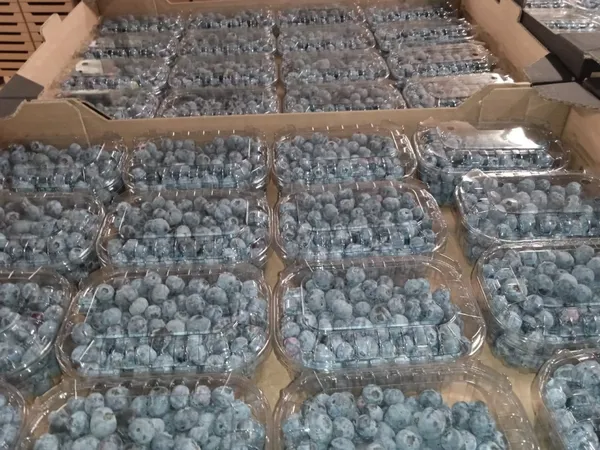It’s very unclear what kind of damage the frosts have caused to the Polish blueberries, says Sandra Stefaniak-Syguła, co-owner of Polish berry trader Berrytrade: “It’s challenging for us to predict what kind of damages these frosts will cause, because we are not growers ourselves. And you know, even for very observant growers it is difficult to estimate the level of damages before they actually start picking berries. Anyways, minus temperatures at night in May are very normal in this part of Europe and many growers with whom we cooperate simply monitor the situation, while using water sprinklers or foggers on fields. Ice cover on blueberry blossoms generated by water sprinklers or the artificial fog are like natural shields for blossoms, a protection from freezing. We prefer to evaluate the frosts and their effects after mid-May or even towards the end of the month, when night-time frosts come to an end.”

Less buds on blueberry bushes or some slight correction of blueberry volumes caused by night-time freezes doesn’t actually have to be a bad news for growers themselves, Stefaniak-Syguła explains. "Quite the contrary, if the bush has less amount of berries to feed, then it can lead to bigger size of berries in the summertime and therefore to more attractive batches of blueberries in the eyes of many customers. Also possible small volume corrections caused by freezes can definitely be compensated by the new hectars planted either in Poland or other growing countries from the area, or by bushes planted a couple of years ago, that are entering full production now.
The weather will be a major factor in blueberry cultivation for a while to come, as the cycle of seasons is no longer as reliable as it once was: “For sure growers have some struggle in recent years, because winters tend to be very mild, then nature keeps on waking up too early and then cold temperatures come again. Like we should have proper four seasons of the year, but there is something between winter and spring continuously for 4-5 months. On the other hand, the winter of 2020/21 was extremely cold, with even minus 40 degrees Celsius in some regions of Poland, so for European growers in general there are more anomalies than normalities when it comes to the weather,” Stefaniak-Syguła concludes.
For more information:
Sandra Stefaniak-Syguła
Berrytrade
Tel: +48 692 640 720
Email: [email protected]
www.berry-trade.com
